Different stone types: A natural stone guide
Posted on 9 July 2025 | Author: Jaya Tripathi

Natural stones and their usage have been seen in our daily spaces for centuries. They are the materials that are extracted from the earth's crust and can be used for various construction and decorative purposes around us.
We have been using different types of natural stones for centuries now, beginning with their use as tools and now in construction as well.
Natural stones in this era play a vital role in modern construction and design, as they have great functional and aesthetic properties that make them harmonize well with other elements while offering great durability that lasts for years.
So if you are planning to get a natural stone for your new project requirements, then this blog post will be helpful for you. We will take you on a tour of different stone types to help you choose the best one for your project requirements.
Types of Natural Stone: Based on Rocks
1. Igneous Rocks
Igneous rocks are those stone types for homes that are crystallized and oxidized under the earth's crust and are made from melting or hot rocks. This usually happens near the hot spots under the earth's crust and then rises to the surface.
Granite Slabs:
Granite slabs is one of the most popular and second-hardest igneous rocks in the world among all the different types of natural stones, and it is found mostly in the mountains. It is mainly composed of coarse grains of minerals such as feldspar and quartz and can be found in the continental region.
Uses
- Kitchen countertops
- Kitchen backsplashes
- Interior and exterior walling
- Interior and exterior flooring
- Bathroom cabinet and vanity
- Fireplace surrounds.
Pros
- It is the second-hardest natural stone in the world.
- It offers resistance to heat, making it ideal to use around fireplace surrounds and in kitchens as countertops.
- Require minimal maintenance and are also resistant to stains.
- A luxurious type of stone for an exterior house that also adds to its overall value.
Cons
- It is not the most effective choice and can also be cracked easily if it is maintained well.
- Being a natural stone requires sealing.
Read More: Benefits of Natural Stone Paving
Basalt:
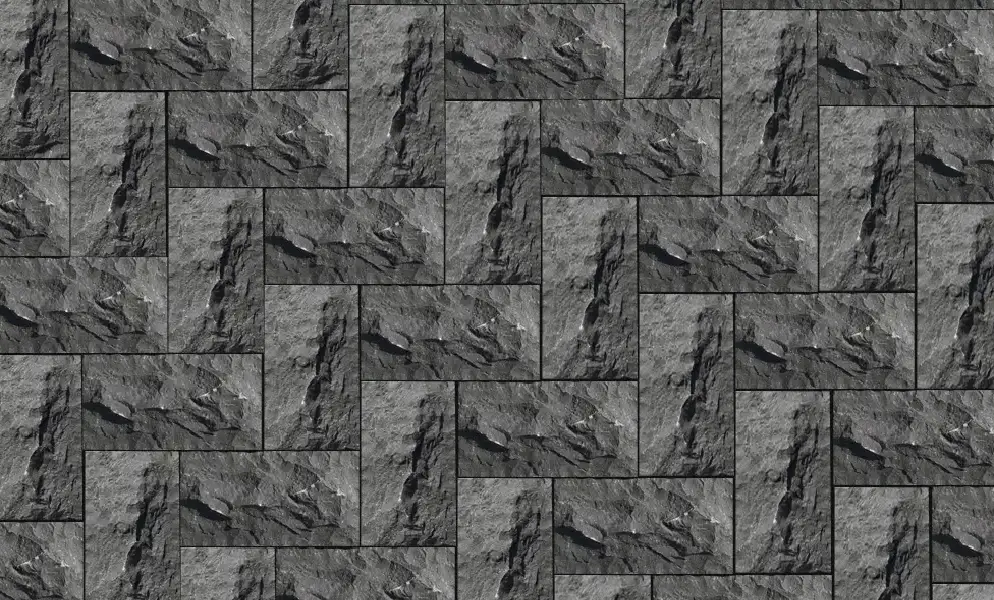
Basalt is a dark-coloured igneous rock mainly composed of minerals such as olivine, plagioclase, pyroxene, feldspar, and much more, which is also one of the main reasons behind the dark colour of this natural stone. This is one of those types of stones for house exteriors that are rich in iron and magnesium.
Uses
- Road Bases
- Railroad and filter stone
- Building veneers
- Kitchen countertops
- Cobblestone Paving
Pros
- It is one of the most durable types of stone for house exteriors.
- It has a distinctive, rough, and unique appearance, making it ideal for more personalized projects.
- It is also easy to clean and maintain.
Cons
- It is a hard stone, which makes it difficult to cut into desired shapes.
- Being a natural stone, it can be stained easily.
2. Sedimentary Rocks
Next, in different stone types, we have sedimentary rocks, formed from pre-existing rock particles. When kept or buried for years, some sediments turn into sedimentary rocks.
Limestone Tiles:
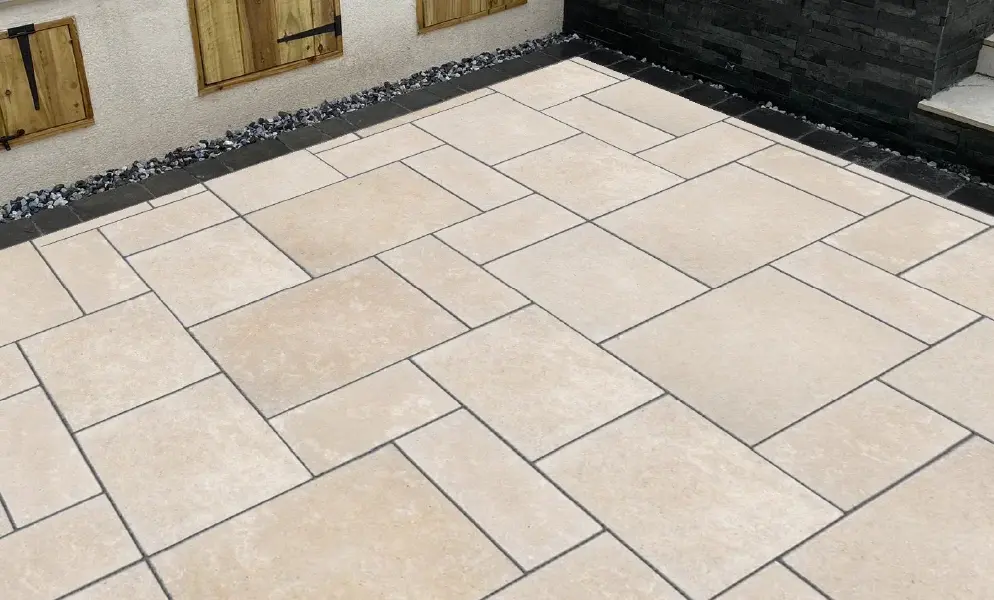
Limestone tiles is a popular type of natural stone and is a sedimentary rock that is composed mainly of two minerals, which are calcite and dolomite. It is a hard and durable stone that is composed of fossilized debris, tiny fossils, and shell fragments.
Uses
- Outdoor paving
- Facade cladding
- Fireplace surrounds
- Indoor flooring
- Under-slab fill
Pros
- It is a highly durable stone, making it popular for exteriors.
- A beautiful stone with unique fossilized veins throughout the surface.
- It also requires minimal to no maintenance.
- One of those types of stone for house exteriors that offers a great variety of uses.
Cons
- It can be scratched easily.
- It can fade its color with time if exposed to sunlight for a longer period of time.
- Being a natural stone, it is highly resistant to acids.
Sandstone Slabs:
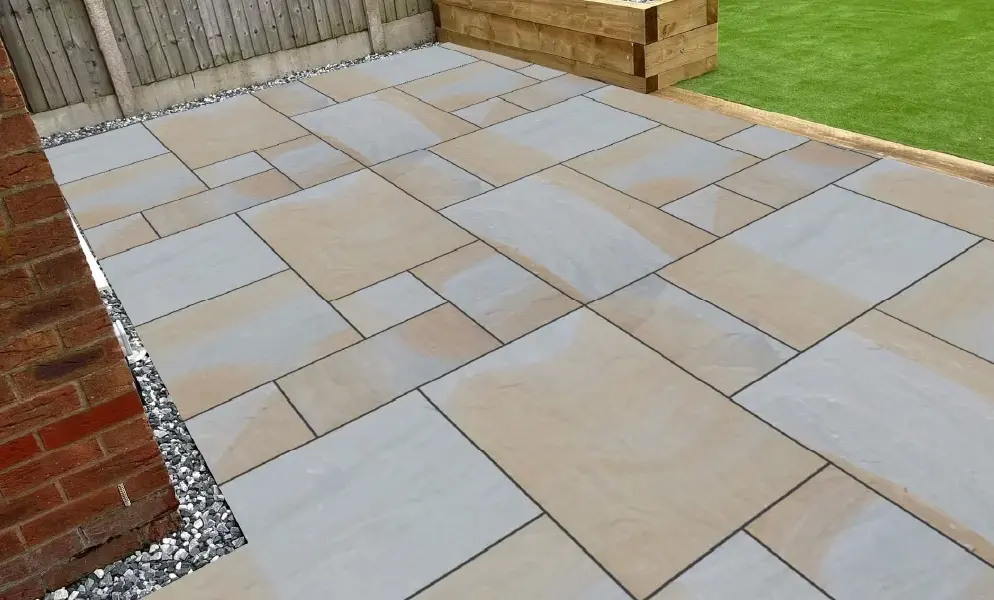
Among different stone types, sandstone slabs is one of the most popular sedimentary rocks. It is composed mainly of feldspar, quartz sand, clay, and silt, which have been compacted together by nature throughout millions of years.
Uses
- Paving material
- Indoor flooring
- Exterior walls
- Pool coping
- Steps
- Countertops
- Ganden Benches
- Interior walls.
Pros
- Each slab of sandstone has a unique look, making it popular for personalized projects.
- It is highly durable and strong, making it a great choice to use outdoors.
- It is a cost-effective material with a variety of uses.
- It also requires minimal to no maintenance to keep its pristine look for a long time.
Cons
- It cannot be DIY-installed and requires professional handling.
- It is highly suspectable that staining FADB requires sealing as well.
- Pressure washing of this stone also requires that it be done with caution.
Read More: Top 10 Quartz Countertops Colors
3. Metamorphic Rocks
Metamorphic rocks include different stone types that have once been subjected to high pressure, heat, and some hot minerals that are rich in fluids or may combine all at once. This type of rock was previously either sedimentary or igneous and later turned into a metamorphic one after being exposed.
Marble Slabs:
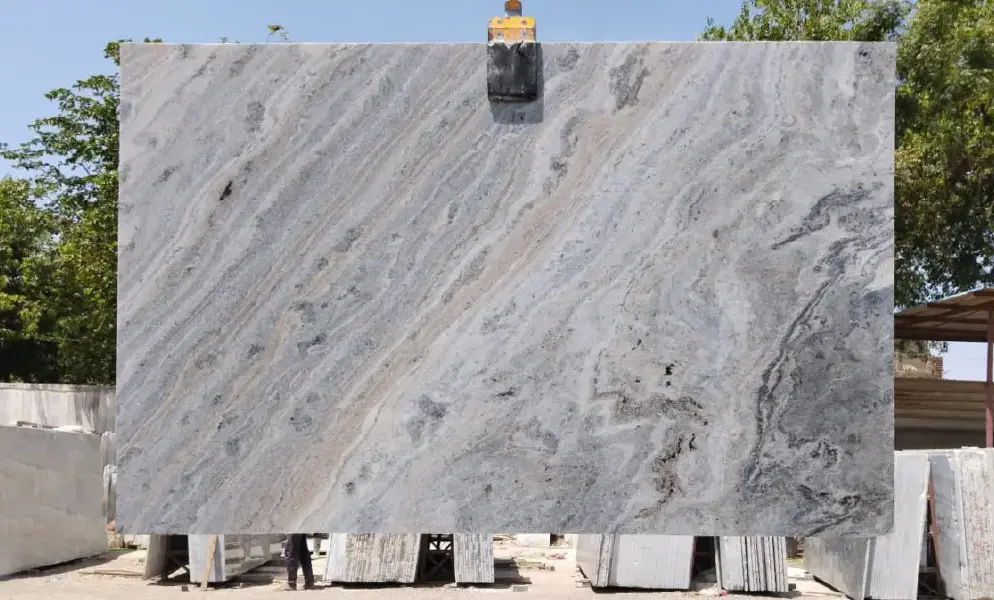
Among all stone types for homes, marble slabs is a popular metamorphic rock that has been used in the construction industry for centuries. It is mainly composed of two materials, which are calcite and dolomite, which are crystallized under heat and pressure.
Uses
- Interior Flooring
- Kitchen countertops
- Fireplace surrounds
- Bathroom Vanities
- Kitchen backsplashes
- Sculptures
- Gravestones
Pros
- It is a strong and durable stone, making it popular for flooring.
- One of those types of stone for house exteriors that resists heat and also has a non-porous surface.
- It also has insulating properties with a high retail value, making it worth the investment.
- It is a luxurious stone because it has a nonslip surface.
Cons
- It requires a certain level of maintenance to keep its shine and look.
- It is a soft stone as compared to other materials.
- It is an expansive stone and can show signs of weathering over time.
Slate Stone:
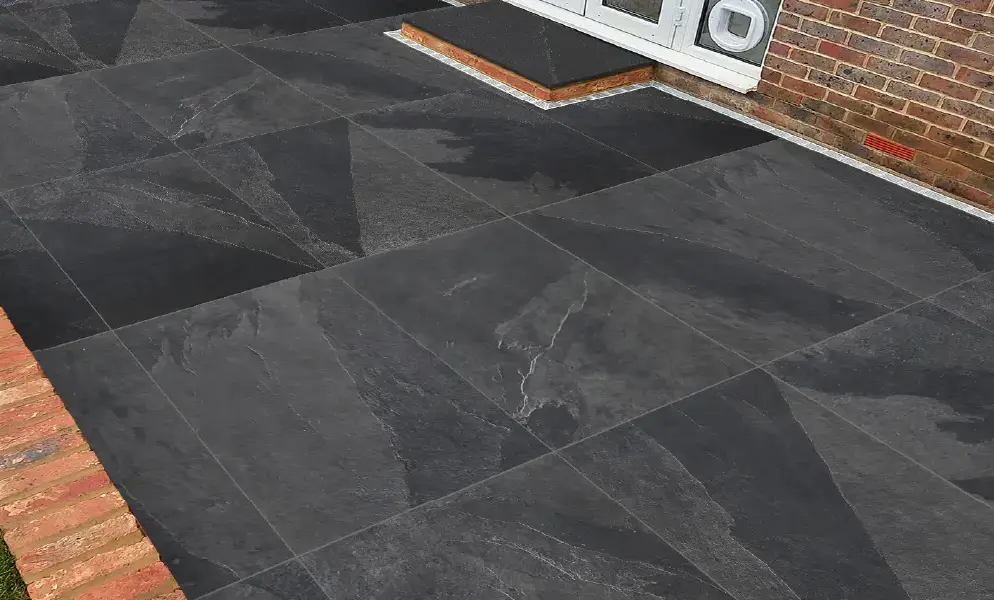
Among all the types of stone for an exterior house, slate stone originated from shale-type sedimentary rock. It is a fine-grained and homogeneous metamorphic rock composed of clay and volcanoes.
Uses
- Flooring
- Residential and commercial roofing
- Wall cladding
- Living room walls
- Bathroom backsplashes
- Building facades
- Planters
Pros
- It is a durable natural stone used for years in construction.
- It is also highly resistant to fire and is used as a popular roofing material.
- It looks rustic in appearance and offers a textured look.
- It is among the most valuable stone types for homes and commercial spaces.
Cons
- It is porous in nature and can absorb liquids.
- It can chip or break easily, making it cautious while being used.
- It is an expansive natural stone that can be difficult to repair if it breaks.
Quartzite Stone:
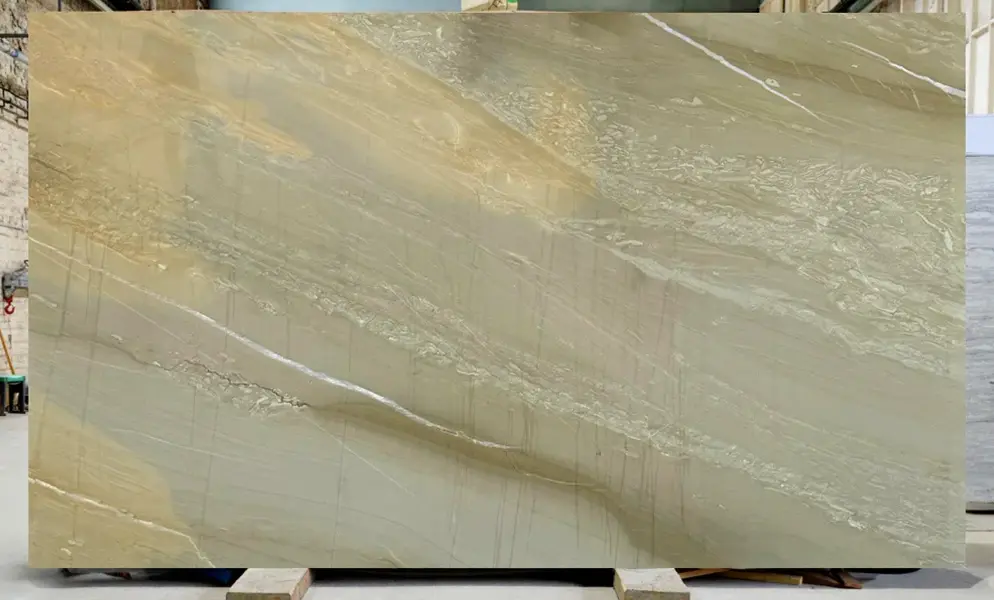
Quartzite is a type of natural stone that is formed from quartz sandstone. It is a metamorphic rock in which sandstone, under extreme heating and pressure within organic belts, is converted into quartzite stone.
Uses
- Interior walls
- Interior flooring
- Roofing tiles
- Wall claddings
- Staircases
Pros
- This stone is considered as hard as granite when it comes to durability.
- It requires minimal to no maintenance, making it popular among homeowners and designers.
- Highly resistant to UV rays and boasts natural beauty with uniqueness in design and patterning.
Cons
- It is an expensive stone as compared to other natural materials.
- Like other types of natural stone tiles, it is also porous in nature.
- It offers limited color options, is heavy in weight, and can be managed by professionals only.
Choosing the Right Natural Stone: Tips to Follow
- While choosing from the different types of stone for an exterior house, look for the durability of the stone and your requirements.
- Consider the time for maintenance and cleaning in which you are looking to invest.
- Different types of natural stones have different appearances; go for what best suits your space and style.
- Consider the budget and choose the one natural stone that fits best under it.
- There are different stones for different applications; consider your intended use before choosing one.
Conclusion
To conclude this blog, we have gone through a list of natural stones that are differentiated based on their rock type, which is either igneous, sedimentary, or metamorphic. Different stone types have different properties, including their own pros and cons.
It is essential to first consider your requirements. based on appearance, intended use, the durability and strength required, and the budget, and then choose the one that best fits your requirements. You can use marble to give your project a luxurious look and a granite slab to add durability to your outdoor space.
While choosing different types of stone for an exterior house, it is also essential to look for quality, as it is vital to make your investment worthwhile. At MPG Stone, we offer the finest quality natural stone materials to help you get the desired outcome in your project. Explore our wide range of products now and choose the one that best resonates with you.
About The Author
Jaya Tripathi is a seasoned content writer and editor with over a decade of experience in the stone and real estate industries. As a leading voice at MPG Stone, she shares insights on installment processes, project insights, design guides, and much more

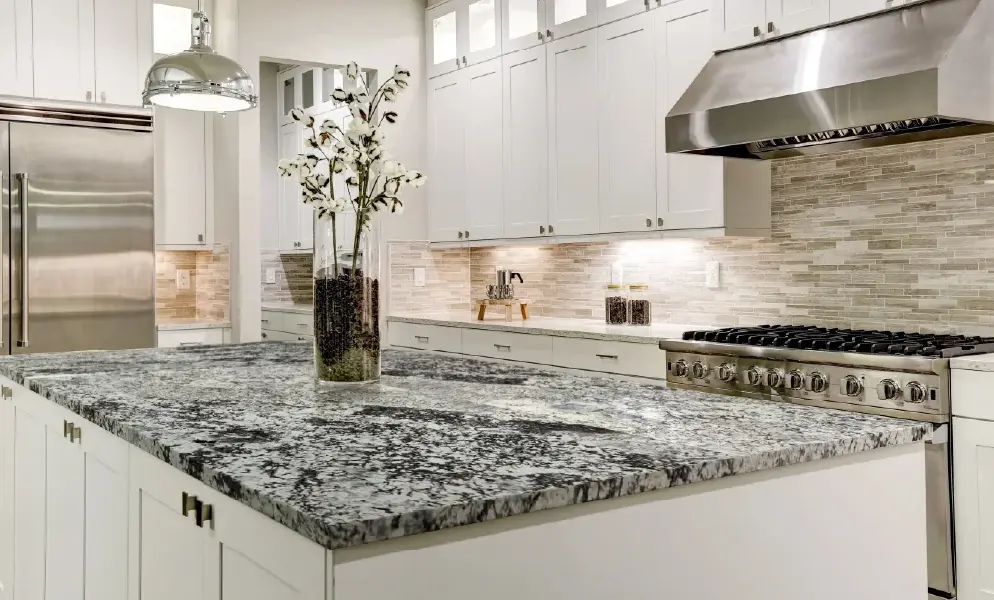





Comments
No comments yet.
Leave a Comment